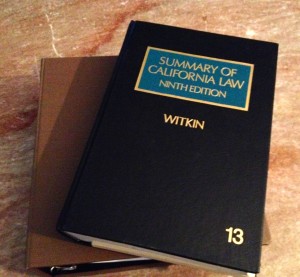Recoverable Damages in Legal Malpractice: Economic Losses
Plaintiffs seeking to bring a malpractice action against former counsel should know what kind of damages they will need to prove (and possibly be permitted to recover). Knowing what kinds of damages are available helps plaintiffs decide when and if to being suit.
COMPENSATORY DAMAGES IN LEGAL MALPRACTICE
Generally, the law allows recovery of “compensatory damages” in malpractice actions. “Compensatory damages” are damages intended to compensate the plaintiff for damages he or she has suffered. In other words, compensatory damages attempt to make the plaintiff “whole.”
Attorneys who commit legal malpractice are liable for all consequential damages the client suffers. Generally, this means the difference between what the plaintiff actually received or recovered and what the client would have received had the lawyer not committed malpractice.
Compensatory damages may fall into a number of categories. Today, and in the weeks to come, we’ll look at damages in more depth, including the type and nature of damages available to plaintiffs in legal malpractice actions.
THE CLIENT’S ECONOMIC LOSSES ARE GENERALLY RECOVERABLE IN A MALPRACTICE ACTION
1. Documented economic losses resulting from legal malpractice are generally recoverable in a successful malpractice action against the plaintiff’s attorney.
2. Attorney fees incurred to file and prosecute the malpractice action are not generally considered recoverable damages. Attorney fees paid to the negligent lawyer are also not usually recoverable — though sometimes such fees can be recovered as contract damages under the attorney-client retainer agreement between the client and the negligent lawyer (consult an experienced malpractice attorney to see whether this situation applies to you).
However, plaintiffs may be able to recover attorney fees paid to commence a lawsuit against a third party (not the negligent lawyer) or defend a lawsuit brought by a third party, where the defendant lawyer’s malpractice caused the lawsuit or made it necessary. This is permitted because of a legal doctrine called “tort of another,” which says that where a wrongdoer’s tortious actions require another person to protect or defend his interests, the injured party may recover compensation for attorney fees and other costs incurred as a result of the wrongdoer’s tort. (In legal terms, a “tort” is a civil wrong committed against the person or property of another.)
3. Punitive damages are not generally recoverable, but may be an option where the negligent lawyer’s conduct justifies an attorney fee award because the lawyer engaged in “oppression, fraud, or malice” against the client which was sufficiently extreme to qualify for punitive damages.
***
Disclaimer: Damages, like other elements of a legal malpractice claim, is a complicated topic, and articles like this can only touch on the basic issues. The details of a legal malpractice claim are individualized and complicated. Your rights and experiences may vary. Never use an article (or any online source) to evaluate your legal claims. Always speak with an experienced lawyer promptly to obtain a personalized evaluation of your claims, possible damages, and options.















